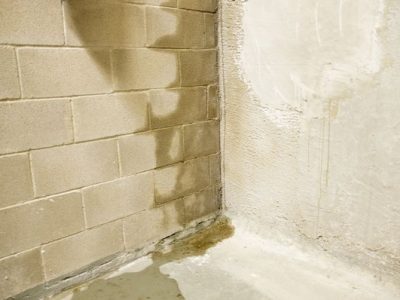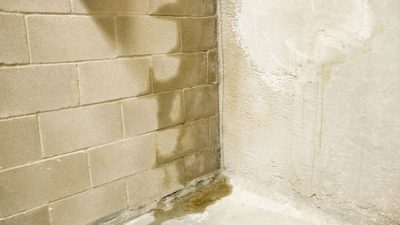Selling a house is one of the most significant decisions a homeowner can make. It involves not just a financial transaction, but also an emotional transition from one chapter of life to the next. Whether you’re relocating for work, downsizing, or upgrading to a larger home, preparing a house for sale requires careful planning, strategic decisions, and a deep understanding of the process. If you’re preparing to list your maison à vendre, this article offers everything you need to know before making the move.
Evaluate the Timing: Is Now the Right Time to Sell?
The timing of your sale can greatly impact the outcome. While the housing market is influenced by broader economic factors, there are personal and seasonal elements to consider as well.
Market Conditions
Start by studying the current market in your region. In a seller’s market, where demand outpaces supply, homes often sell quickly and above asking price. In a buyer’s market, however, your house may sit longer and face stiffer competition.
Seasonal Trends
Spring and early summer are traditionally considered the best times to list a house, as buyers are more active and families want to settle before the new school year. However, selling in the off-season may attract more serious buyers and reduce competition.
Personal Readiness
Ask yourself: Are you emotionally and financially prepared to move? Do you have a clear plan for your next residence? Is your house in a condition to list, or does it require upgrades?
Preparing the House for Sale: More Than Just Cleaning
Staging and presentation are critical when it comes to selling a house. It’s about making your property irresistible to potential buyers and helping them visualise themselves living there.
Decluttering and Depersonalising
Remove personal items like family photos, kids’ artwork, and memorabilia. This helps create a neutral space that appeals to a wider audience. Decluttering also makes rooms appear larger and more functional.
Repairs and Minor Renovations
Fix leaky faucets, squeaky doors, chipped paint, and any cosmetic damage. If your budget allows, consider minor updates like new lighting fixtures, cabinet hardware, or modernising an old bathroom. These small investments can lead to big returns.
Professional Cleaning and Landscaping
A spotless home is non-negotiable. Hire professionals if necessary to deep-clean carpets, scrub grout, and shine windows. Don’t forget curb appeal—mow the lawn, plant seasonal flowers, and clean the driveway to ensure a positive first impression.
Setting the Right Asking Price: Finding the Sweet Spot
Pricing a house too high can deter buyers, while pricing it too low may lead to financial loss. Striking the right balance is both an art and a science.
Comparative Market Analysis (CMA)
A CMA involves evaluating similar properties recently sold in your area, factoring in square footage, location, age, and condition. This provides a realistic benchmark for your asking price.
Emotional vs. Market Value
Many homeowners overestimate their property’s worth due to emotional attachment. It’s important to approach the sale objectively and rely on data-driven insights rather than sentiment.
Room for Negotiation
Build some flexibility into your asking price, knowing that buyers often expect to negotiate. However, avoid leaving too much room, as overpricing can reduce the number of showings and limit serious inquiries.
Marketing Your Property Strategically
Effective marketing ensures your house gets noticed by the right buyers. Today’s property marketing goes far beyond a simple listing.
High-Quality Photography
Professional photos make a powerful first impression. Make sure your home is well-lit, tidy, and staged when photos are taken. Consider twilight or aerial shots if your property has special outdoor features.
Virtual Tours and Video Walkthroughs
With more buyers starting their search online, video walkthroughs and 3D tours provide an immersive experience that increases interest and reduces time on the market.
Real Estate Listings and Online Visibility
Make use of property platforms, social media, and agency websites to maximise reach. The more eyeballs on your listing, the greater your chances of securing offers.
Open Houses and Private Showings
Hosting open houses can generate interest quickly, especially during the first week on the market. Private showings allow serious buyers to envision their life in your home and provide valuable feedback.
Legal and Documentation Essentials
Selling a house also involves administrative responsibilities and legal paperwork. Being well-prepared ensures a smooth transaction.
Title and Ownership Verification
Ensure that you have clear ownership of the property and that there are no disputes or encumbrances on the title. Buyers will verify this during the closing process.
Mandatory Disclosures
Sellers are often legally required to disclose issues such as mould, pest infestations, structural problems, or flood history. Failing to disclose known issues can result in legal action later.
Energy and Safety Compliance
Depending on your location, your property may require certain certifications or inspections—such as energy efficiency ratings, electrical safety certificates, or gas compliance checks.
Negotiation and Closing: Be Ready for Flexibility
Once offers begin to come in, be ready to negotiate not just on price, but also on contingencies, repairs, and timelines.
Reviewing Offers Strategically
Don’t focus solely on the highest bid. Consider the buyer’s financial strength, flexibility in terms, and conditions like financing or home sale contingencies.
Responding to Inspections
Buyers often request inspections that may uncover issues. Be open to negotiating minor repairs or providing a credit instead of fixing everything.
Closing the Sale
Once an offer is accepted, final steps include signing contracts, transferring title, clearing liens, and coordinating the move-out. Working with a conveyancer or legal advisor is highly recommended at this stage.
FAQ: Selling a House – Real Questions from Real Sellers
- How much does it cost to sell a house?
A. Typical costs include real estate agency fees, legal costs, possible repair expenses, staging, photography, and potential taxes. These can add up to 5–10% of the sale price. - Do I need to renovate before selling?
A. Not necessarily. Focus on necessary repairs and small cosmetic improvements that improve appeal without a full renovation unless the return on investment is clearly justified. - Should I accept the first offer I receive?
A. Not always. While some first offers are strong, it’s worth reviewing your options and understanding buyer motivation. A bidding war could yield better terms. - Can I sell my house without a real estate agent?
A. Yes, it’s possible (For Sale By Owner), but it involves more responsibility for pricing, marketing, legal documents, and negotiations. For many sellers, a qualified agent adds significant value. - What documents are needed to list a house for sale?
A. Key documents include your title deed, recent tax assessments, mortgage information, utility bills, and any records of renovations or inspections.


















Comments